JOBS & EDUCATION
Building an inclusive economy that works for everyone requires increasing worker agency and power. We offer policy ideas to create good jobs, improve job quality, and expand access to education and training.
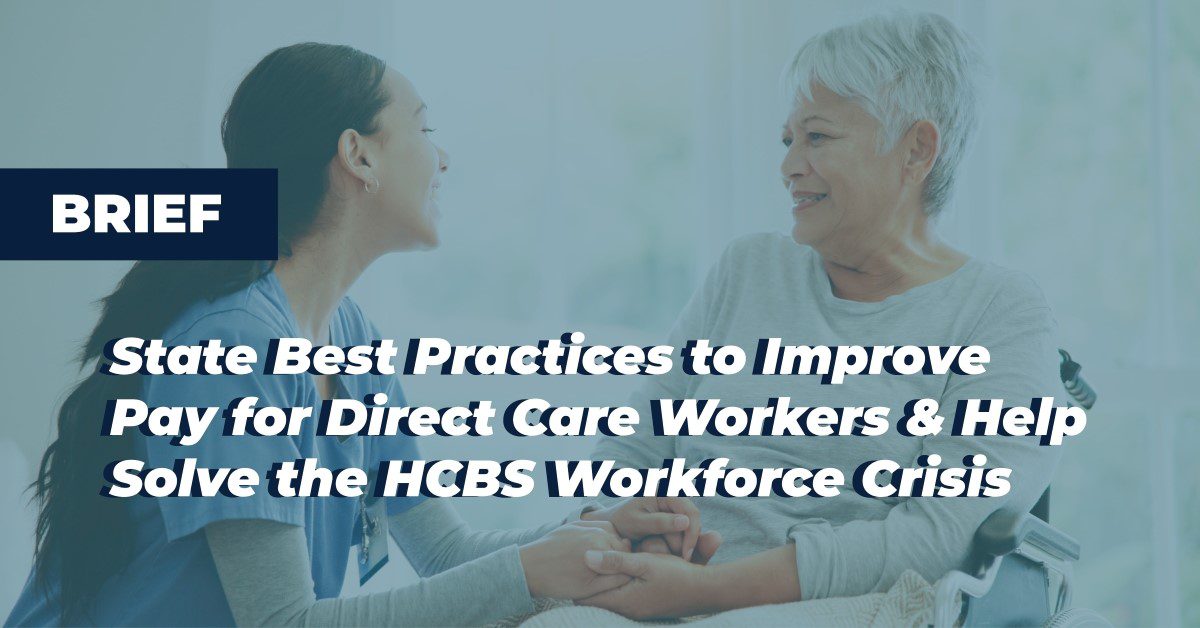
Medicaid-funded home- and community-based services make it possible for people with disabilities and older adults to live in their own homes and communities, where most people prefer to live. A long-standing direct care worker shortage, caused by low pay and poor working conditions and worsened by the COVID-19 pandemic, threatens access to direct care. State and local governments are innovating to respond to the care crisis. This brief highlights a selection of state best practices to improve wages for direct care workers in Medicaid-funded HCBS programs and help solve the workforce crisis. By raising wages, providing good benefits, and increasing job quality for direct care workers, who are disproportionately women and women of color, states can start to build a direct care system in which all consumers, workers, and families can thrive.
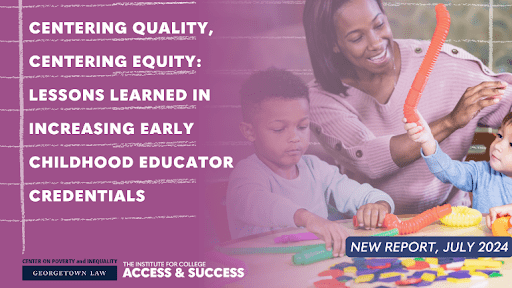
Thriving communities depend on a strong early childhood education system—one where both young children and members of the workforce are served and supported. Some states are changing credential requirements for ECE teachers, but many early childhood educators face significant barriers to economic security and continuing education—all while supporting children, parents, and their communities with specialized education services. Our new report with The Institute for College Access and Success examines the racial equity implications of policies that increase credential requirements for ECE jobs. Featuring case studies of California and Washington, D.C., the report offers policy ideas for protecting educators and advancing racial and economic equity, including flexibility and support for incumbent workers, wage increases, and low-cost options for obtaining new credentials.

Child care is an essential element of our social infrastructure that supports child development, family financial stability, and economic growth. But structural racism and sexism have led to the underinvestment and undervaluation of child care in the United States. This brief, published with the National Women’s Law Center (NWLC) offers a new, anti-racist vision for transforming the Child Care and Development Fund (CCDF) into a program that actively pushes back against structural racism and advances racial equity and economic prosperity for all families. It proposes recommendations for advancing a more equitable child care system.

Subsidized employment programs are engines for economic opportunity, stronger labor markets, and healthier communities. This blog highlights select evidence demonstrating that subsidized employment is good for workers and employers and can help create a strong, inclusive economy.
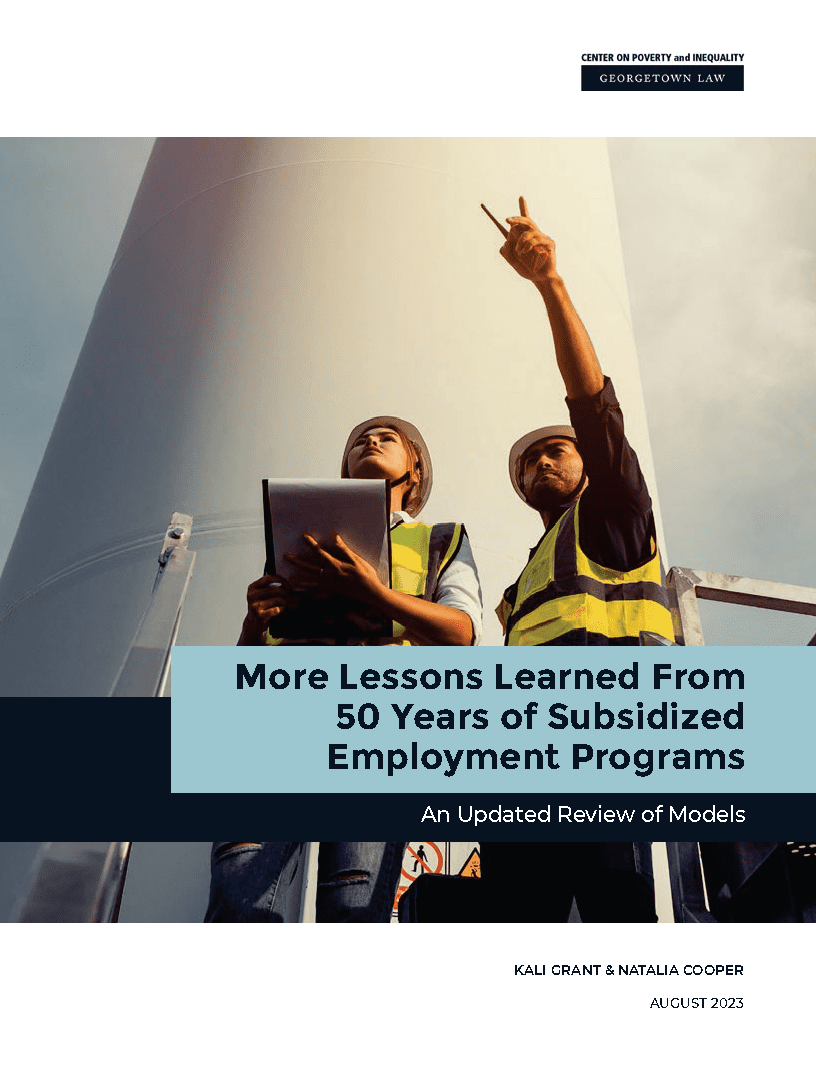
Subsidized employment is an engine for economic opportunity, stronger labor markets, and healthier communities. It can mitigate structural barriers to work, such as racial discrimination in the labor market, and be adapted and scaled to meet specific worker, employer, and community needs. This report reviews a half-century of evidence on subsidized employment’s power to increase employment and incomes, reduce poverty, and ensure a more inclusive economy for everyone. It is the second edition of a 2016 report, “Lessons Learned from 40 Years of Subsidized Employment Programs.”

Nearly 15 million people in the U.S. who would like to work are unable to find a job—despite a historically low national unemployment rate. This blog, published in partnership with the Center for Economic and Policy Research, highlights one policy tool that would help create jobs and boost earnings for people in disinvested neighborhoods and communities: subsidized employment. A half-century’s worth of evidence suggests that a large-scale subsidized jobs program would help ensure the communities typically left behind in periods of economic growth can share in the nation’s economic security and opportunity.

Over the past three decades, segregation across groups of majors, or fields of study, between women of color and White men has increased. This segregation threatens equal opportunity and contributes to a segregated workforce — which negatively impacts wages, job security and career mobility for millions of workers, especially women and Black and Brown people. Even as topline statistics on diversity in overall enrollment improve, higher education institutions shouldn’t miss critical opportunities to ensure that women and students of color are aware of, feel welcome in, and can participate in all fields of study.
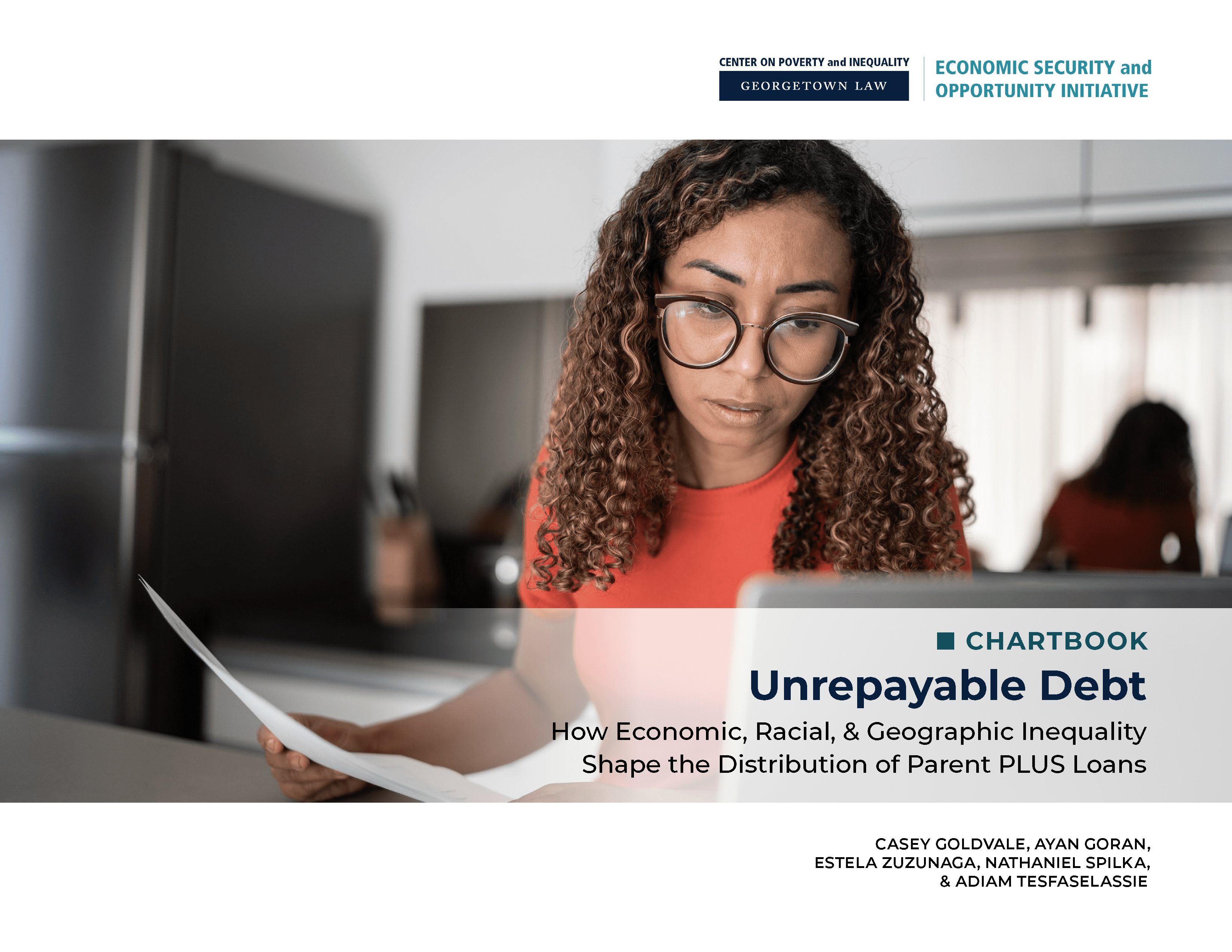
Each year, millions of parents across the U.S seek to help their children pay for higher education using the only source of federal financial aid for parents: the Parent PLUS loan program. Despite offering an additional college financing option, Parent PLUS disproportionately distributes unrepayable debt by income level, race and ethnicity, geography, and higher education sector, burdening low-income parents with immense debt. This chartbook examines key features of Parent PLUS loan borrower experiences, finding that Parent PLUS burdens parents and students from low-income households, Black families, and students attending postsecondary institutions in the South. Understanding this uneven distribution of Parent PLUS debt is vital in order for policymakers, postsecondary administrators, and advocates to redesign the program and develop a more equitable higher education financing system for parents and students.
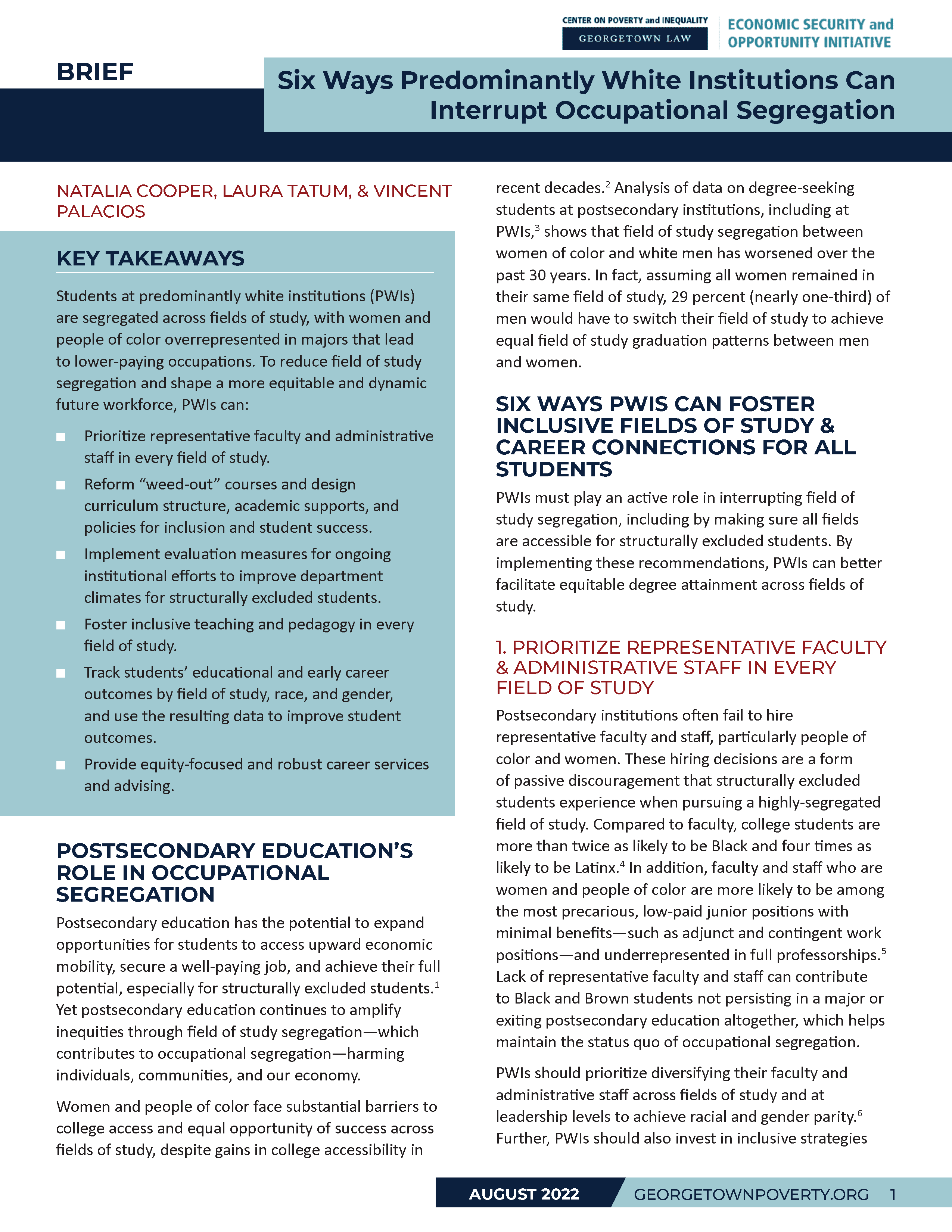
Predominantly white institutions (PWIs) educate about 70% of all bachelor’s degree graduates and about half of all students of color. Students at PWIs tend to be segregated across fields of study, with women and people of color overrepresented in majors that lead to lower-paying occupations. Administrators at PWIs have a major opportunity to interrupt this segregation and promote inclusion and success of students of color in postsecondary education. This brief offers six key recommendations that administrators at PWIs can implement to reduce field of study segregation and shape a more equitable and dynamic future workforce.
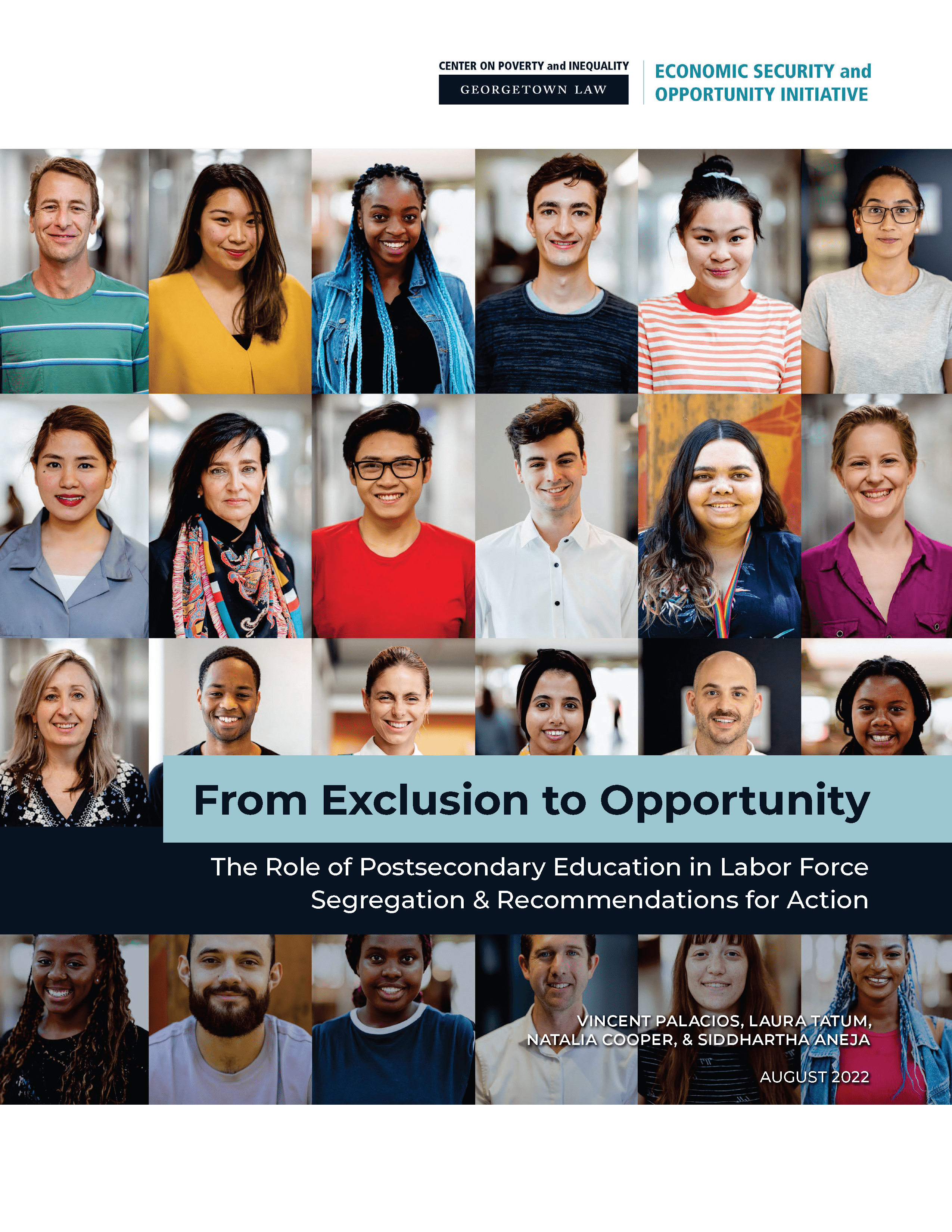
A four-year postsecondary degree offers opportunities for a higher income and upward economic mobility. However, postsecondary education—historically inaccessible to people of color and women—also plays a key role in reproducing and amplifying societal inequities by sorting students into specialized fields of study by race and gender, contributing to a segregated labor force. This report examines the link between postsecondary field of study and labor market segregation using an original quantitative analysis. This report presents four principles and corresponding recommendations that postsecondary institutions and policymakers can use to reduce racial and gender segregation across fields of study, increase degree attainment, and ultimately, ameliorate labor market segregation.
